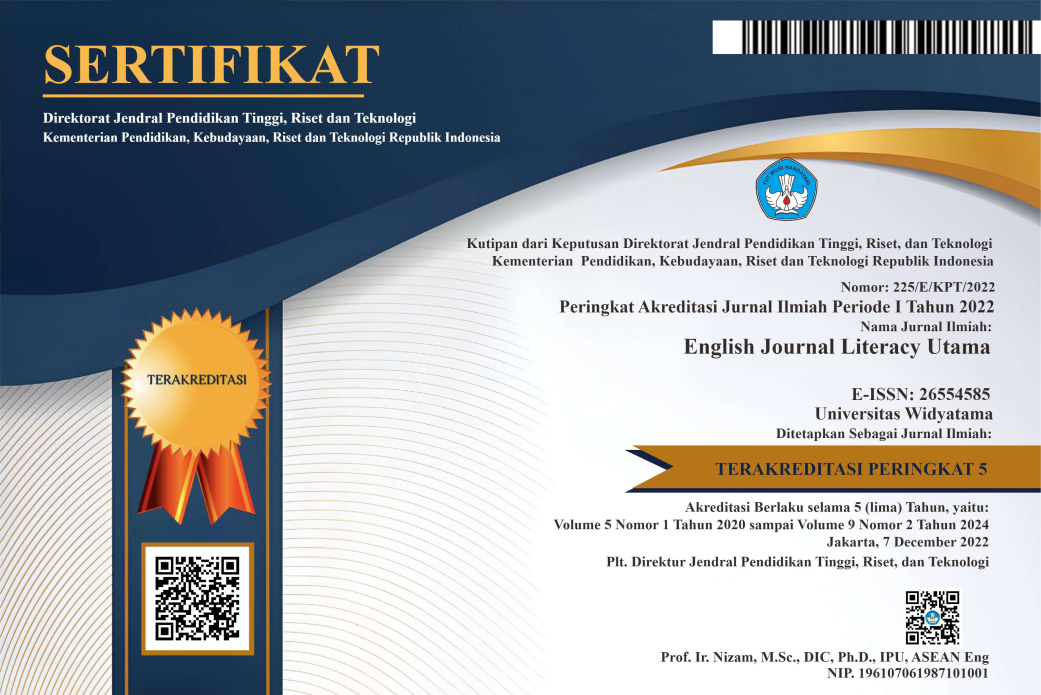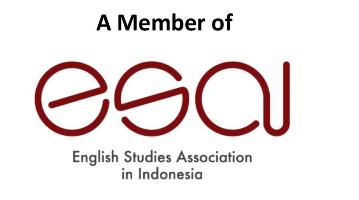DIGITALIZING FORMATIVE ASSESSMENT QUESTIONS BANK WITH QUIZZIZ
DOI:
https://doi.org/10.33197/ejlutama.v8i1.225Keywords:
Digital, banking, formative assessmentAbstract
Some teachers have always been encountering difficulties in writing an assessment especially a formative assessment. It is apparent that assessment is necessary to measure the achievement of learning objectives in teaching and learning to meet today's needs. This study aims to scrutinize the current books of question bank products as a benchmarking and attempt later on to design a preliminary digitalized question bank form to help teachers conduct formative assessments. The study uses research and development model and qualitative approach. It applied three phases of Borg & Gall's theory: research and information gathering, planning, and preliminary product development. Documentary data collection techniques are used to identify the characteristics and limitations of the question bank. A critical literature review and qualitative item analysis were used to analyse the data. Twenty-six question bank indicators were identified from a review of related literature. Twenty-six indicators are used to investigate weaknesses in current question bank products. Ten shortcomings were identified in both products meanwhile the second product has fewer defects than the first. The preliminary form of the digitalized question bank was designed by adapting existing products and overcoming their shortcomings. Forty entries were written and displayed in a test. The developed items are characterized to be more relevant to higher-level thinking which is analysis level cognitive domain about 48%. In addition 52.5% of the developed items are identified as medium difficulty.
References
Amalia, D. F. (2020). Quizizz Website As An Online Assessment For English Teaching And Learning: Students’ Perspectives. Jo-ELT (Journal of English Language Teaching), 7, 1-8. 10.33394/jo-elt.v7i1.2638
Black, P., & Wiliam, D. (2009). Developing the theory of formative assessment. Educational Assessment, Evaluation and Accountability, 21, 5-31. https://doi.org/10.1007/s11092-008-9068-5
Borg, W.R., & Gall, M.D. (1983). Educational research: An introduction. New York: Longman.
Gall, M. D., Gall, J. P., & Borg, W. R. (2003). Educational Research: An Introduction. Allyn and Bacon.
Gustiani, S. (2019). Research and development (R & D) method as a model design in educational research and its alternatives. Holistics Journal, 11(2), 12-22.
Hayati, N., & Mardapi, D. (2014). Pengembangan butir soal matematika SD di kabupaten Lombok Timur sebagai upaya dalam pengadaan bank soal. Jurnal Kependidikan, 44, 26-38.
Hidayah, N., Ramli, M., & Hanafi, H. (2018). East Java Modeling Techniques to Improve Student Meaning of Life. East Java Modeling Techniques to Improve Student Meaning of Life, 269, 181-185.
Irawati, I., & Fitriati, I. (2018). Developing Computer-Based Test (CBT) to Improve Students’ Achievement. The 1st International Conference on Halal Tourism, Products, and Services 2018, 106-111.
Khairil, L. F., & Mokshein, S. E. (2018). 21st century assessment: online assessment. International Journal of Academic Research in Business and Social Sciences, 8, 659–672. DOI: 10.6007/IJARBSS/v8-i1/3838.
Lestari, T., Bharati, D. A. L., & Rukmini, D. (2018). Developing Project-Based Writing Assessment Module to Stimulate Students’ Critical Thinking and Creativity. English Education Journal, 8, 499-507.
Mili, B. (2020). Meningkatkan kompetensi guru dalam menyusun butir soal bermutu melalui program workshop di SD katolik 079 Nangarasong, Sikka Nusa Tenggara Timur. Intelektiva : Jurnal Ekonomi, Sosial & Humaniora, 01(11), 144-154.
Muji, A. P., Ambiyar, Aziz, I., & Hidayat, H. (2021). The implementation of Quizizz-based online evaluation in higher education: an exciting alternative for evaluation. International Journal of Research in Counseling and Education, 5(2), 186-194. doi.org/10.24036/00478za0002
Nashruddin, W., & Mustaqimah, H. A. Z. (2020). Critical literature review in TEFL research: towards interdisciplinary study. ELT-Echo, 5(2), 79-93.
Rahayu, I. S. D., & Purnawarman, P. (2019). The Use of Quizizz in Improving Students’ Grammar Understanding through Self-Assessment. Advances in Social Science, Education and Humanities Research, 254, 102-106.
Rodriguez, M. C. (2016). Selected-response item development. In Handbook of test development (second ed., pp. 259-273).
Suhartatik, T. (2020). Best Practice Implikasi Media Quizizz Berbasis Android Terhadap Kualitas Pembelajaran dalam Mencetak Siswa Berprestasi Di Tingkat Nasional. Ahlimedia Book.
Sumardyono, & Wiworo. (2011). Pengembangan dan Pengelolaan Bank Soal Matematika di KKG/MGMP (Sugiyanto, Ed.). Kementerian Pendidikan Nasional Badan Pengembangan Sumber Daya Manusia Pendidikan dan Penjaminan Mutu Pendidikan, Pusat Pengembangan dan Pemberdayaan Pendidik dan Tenaga Kependidikan Matematika.
Suryani, Y., Sapriya, Malihah, E., & Komalasari, K. (2019). Developing investigation group learning model based on Marzano instructional framework to promote students’ higher order thinking skill. Journal of Physics: Conference Series, 1-6. doi:10.1088/1742-6596/1477/4/042012.
Widana, I. W. (2014). Pengembangan bank soal. EMASAINS, III, 186-197.
Winaryati, E. (2017). Model Pembelajaran "Wisata Lokal". UNIMUS Press. Zuhriyah, S., & Pratolo, B. W. (2020). Exploring Students' Views in the Use of Quizizz as an Assessment Tool in English as a Foreign Language (EFL) Class. Universal Journal of Educational Research, 8(11), 5312-5317. UIN Sunan Gunung Djati10.13189/ujer.2020.0811
Downloads
Published
Issue
Section
License
Copyright (c) 2023 Tedi Rohadi, Shofia Mardhiyah

This work is licensed under a Creative Commons Attribution-NonCommercial-ShareAlike 4.0 International License.
Creative Commons Attribution-ShareAlike 4.0 International License















